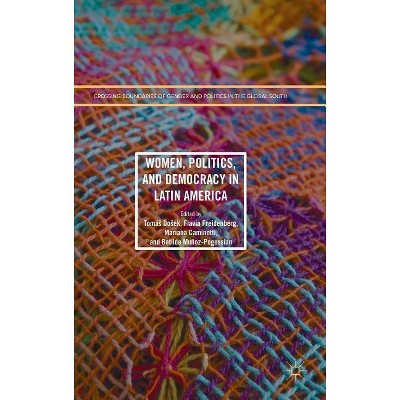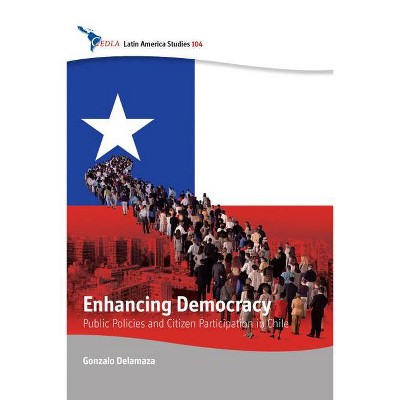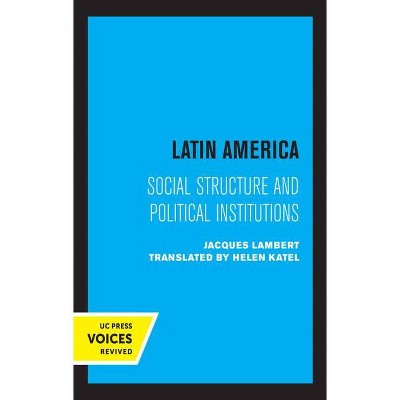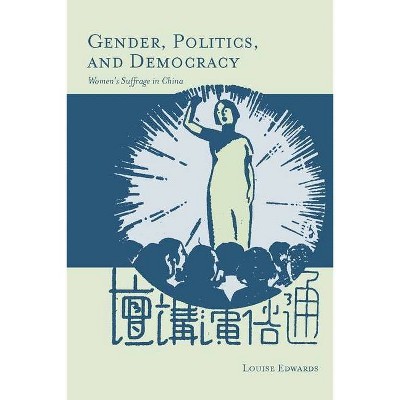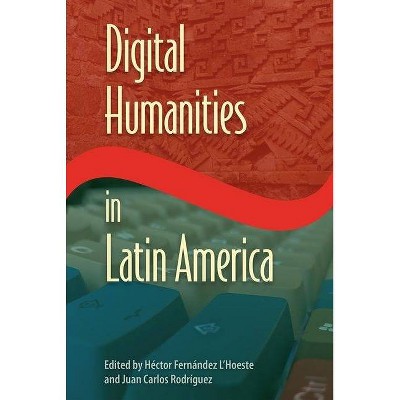The Politics of Local Participatory Democracy in Latin America - by Françoise Montambeault (Hardcover)
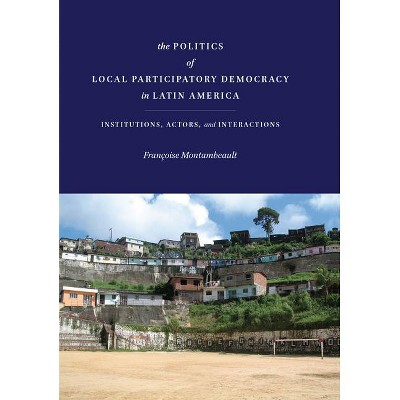
Similar Products
Products of same category from the store
AllProduct info
<p/><br></br><p><b> Book Synopsis </b></p></br></br>Participatory democracy innovations aimed at bringing citizens back into local governance processes are now at the core of the international democratic development agenda. Municipalities around the world have adopted local participatory mechanisms of various types in the last two decades, including participatory budgeting, the flagship Brazilian program, and participatory planning, as it is the case in several Mexican municipalities. Yet, institutionalized participatory mechanisms have had mixed results in practice at the municipal level. So why and how does success vary? This book sets out to answer that question. Defining democratic success as a transformation of state-society relationships, the author goes beyond the clientelism/democracy dichotomy and reveals that four types of state-society relationships can be observed in practice: clientelism, disempowering co-option, fragmented inclusion, and democratic cooperation. Using this typology, and drawing on the comparative case study of four cities in Mexico and Brazil, the book demonstrates that the level of democratic success is best explained by an approach that accounts for institutional design, structural conditions of mobilization, and the configurations, strategies, behaviors, and perceptions of both state and societal actors. Thus, institutional change alone does not guarantee democratic success: the way these institutional changes are enacted by both political and social actors is even more important as it conditions the potential for an autonomous civil society to emerge and actively engage with the local state in the social construction of an inclusive citizenship.<p/><br></br><p><b> Review Quotes </b></p></br></br><br>[Montambeault] makes a strong case that political institutions alone will not further democratization but that effective participation in local affairs contributes to a positive state-society relationship that underscores the fostering of democratic politics. While doing academically rigorous analysis, she never loses sight that the lives of real human beings are at the center of this process of democratization. This valuable work is recommended for large university libraries, especially those with strong holdings in Latin America.--J.A. Rhodes "<i>CHOICE</i>"<br><br>Montambeault demonstrate[s] the shortcomings of participatory institutions for fostering inclusive democratization, while at the same time defining the parameters that lead to their success.... [Her work] contributes to our understanding of how to transform state-civil society relationships, and the roadblocks to expect along the way.--Maureen Donaghy "<i>Latin American Research Review</i>"<br><br>Montambeault's outstanding book provides us with a much-needed account of the relationship between participatory democracy and deepening democracy. Far from looking at civil society and participatory innovation as magic bullets, the book draws on rigorous empirical research to persuasively illuminates the conditions conducive to both the success and failure of local participatory innovations.--Adrian Gurza Lavalle "University of São Paulo"<br><br>Montambeault's study of local-level participatory democracy stands out for its distinctive research strategy--comparing cities across and within Brazil and Mexico--and for its integrated theoretical perspective that dynamically combines structures, institutions, and actors.--Benjamin Goldfrank "Seton Hall University"<br><p/><br></br><p><b> About the Author </b></p></br></br>Françoise Montambeault is Assistant Professor of Political Science at the Université de Montréal.
Price History
Price Archive shows prices from various stores, lets you see history and find the cheapest. There is no actual sale on the website. For all support, inquiry and suggestion messagescommunication@pricearchive.us
